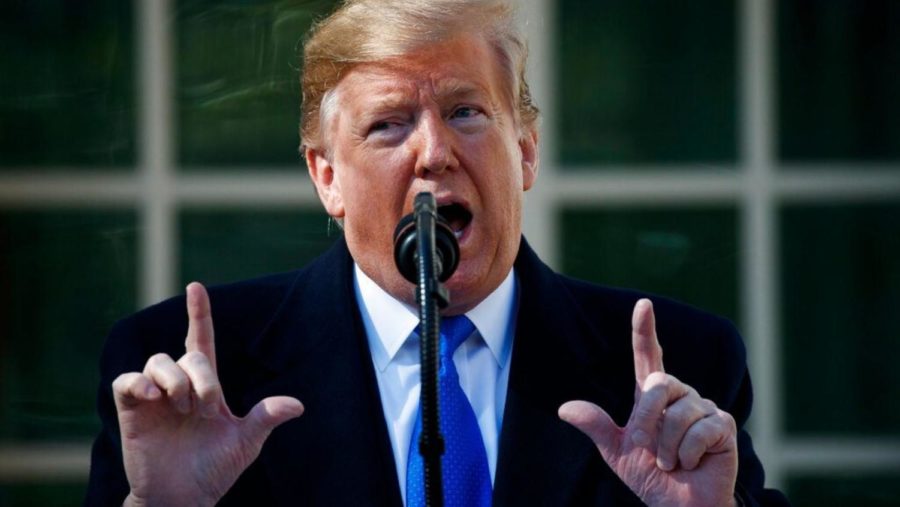A National, Not So, Emergency
President Trump giving his statement, the day he declared the National Emergency
On February 14, Trump declared a National Emergency in order to receive funding for a border wall built on the Mexican border. This comes a day after Congress passed a budget that will fund the nation until September. The budget funds the fight against the opiate crisis, increases in federal workers wage and even a 55-mile long stretch of steel fencing for the border wall. However, the money offered is less than President Trump wanted to build his wall, but it is a compromise between the two parties since it is much more than what Speaker of the House, Nancy Pelosi, originally offered.
President Trump is citing an invasion of drugs and criminals into our nation as the reason for the national emergency. The 1976 National Emergency Act allows for the President to redirect spending as long as it is for military construction projects or is essential to the National Defense. However, later in his statement President Trump contradicted the urgency that a National Emergency would typically suggest. “I didn’t need to do this, but I’d rather do it much faster,” said President Trump in his statement on the 15th. Many State Attorney Generals have questioned the legitimacy of the National Emergency and are taking legal action against it.
Sixteen U.S. States have sued President Trump over his National Emergency. The two largest electoral states suing are California and New York, which is unsurprising due to the states tendency to vote Democrat. “This is plainly a power grab by a disappointed president, who has gone outside the bounds of the law to try to get what he failed to achieve in the constitutional legislative process,” said Senator Chuck Schumer of New York and Speaker of the House Nancy Pelosi in a joint statement.
Before the lawsuits were filed, President Trump expressed that he was expecting to be sued over it, but was also confident that he and the White House would be able to win in the Supreme Court.













Dylan Kowalski • Mar 12, 2019 at 12:07 PM
I think the fact that it is fact based is really good. I didn’t seem any of the writers opinion in this article which helps the article a lot. It was written good and interesting. It was also helpful considering some people could come to this article or page to get the scoop on why the government was shut down for nearly a month.